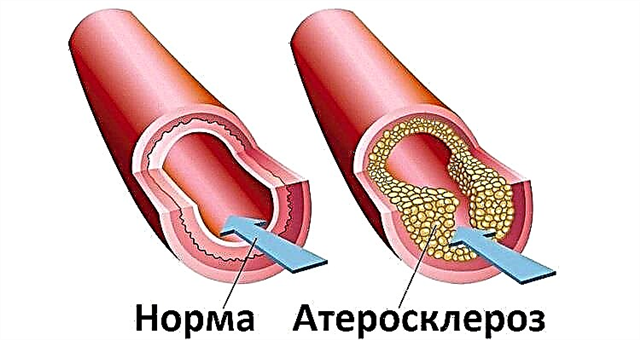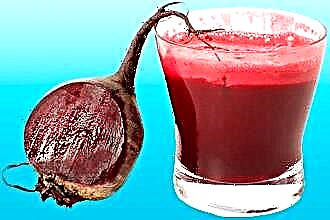 The onset of a cough can be caused by many factors, for example:
The onset of a cough can be caused by many factors, for example:
- infectious infection (flu, streptococci), when pathogenic microorganisms enter the body through the respiratory tract and affect the tracheal mucosa. In addition, germs can fly and infect any part of the respiratory tract. Toxins lead to the appearance of symptoms of intoxication, which create a complete picture of tracheitis;
- dry, polluted air. Also, tracheitis is possible in people working in hazardous industries for diseases of the respiratory tract. This applies to the mining, grain processing and cotton-spinning industries. Against the background of chronic bronchitis, tracheitis often develops;
- an allergic reaction.
The appearance of a dry cough leads to scratching and soreness in the oropharynx. After 3-4 days, the cough becomes moist with sputum difficult to separate.
It is thick and, when accumulated, provokes coughing attacks. The attack may be triggered by laughter or deep breathing.
Depending on the cause, the temperature may rise, the sputum becomes with a yellowish tinge and the general condition worsens.
The appearance of a yellow-green tinge of sputum indicates bacterial inflammation.
Drug treatment
It is necessary to start the fight against tracheitis after establishing the cause of the disease. In the treatment can be used:
- antibacterial drugs that inhibit the growth of disease-causing microbes and reduce inflammation. Among the most common antibiotics, Flemoxin, Azithromycin or Cefotaxime are prescribed;
- antiviral agents, the action of which is aimed at eliminating viral pathogens and strengthening immunity. Recommended Amiksin, Tsitovir, Novirin or Ingavirin;
- Antipyretic drugs make it possible to reduce hyperthermia and prevent dehydration. So, you can use Nimid, Paracetamol or Ibufen; vitamins (Aevit, Alphabet);
- antihistamines (Suprastin, Cetrin, Diazolin);
- with a dry cough, antitussive drugs are prescribed, for example, Bronholitin or Sinekod;
- with a wet cough with sputum that is difficult to separate, drugs are shown that reduce its viscosity and facilitate the process of coughing up. Ambroxol, Flavamed or ACC. To provide anti-inflammatory action, Erespal is used, which additionally provides an antihistamine effect. If bronchospasm is suspected, Ascoril is prescribed;
- bronchodilators (for bronchospasm) - Ventolin (inhaler);
With a complicated course of tracheitis (laryngotracheitis or tracheobronchitis), inhaled hormonal agents are prescribed. To cure tracheitis, you need to adhere to the following recommendations:
- drinking plenty of fluids, focusing on still alkaline water, warm milk with soda, juices and compotes. This allows you to reduce the severity of intoxication due to the active elimination of toxins;
- proper nutrition. Products that irritate the mucous membrane of the oropharynx are excluded (spicy, salty, hard, fried foods, cold and hot drinks);
- bed rest (first 5 days);
- lack of contact with sick people, so as not to get infected additionally;
- humidification of air in the room, wet cleaning and ventilation.
Inhalation
Inhalation plays a special role in the treatment of tracheitis. Their action is directed directly to the inflammatory focus, because the medicine in the form of small particles settles on the mucous membrane of the trachea. Treatment can be carried out using a nebulizer or in the usual "over the pan" method.
Remember:
- inhalation is carried out one hour after eating;
- after the procedure, it is forbidden to drink, smoke, inhale cold air and eat;
- oil solutions and herbal decoctions are not inhaled with a nebulizer;
- steam temperature should not exceed 55 degrees;
- you need to start inhalation, making sure that there is no allergy to the drug;
- nebulizer solutions are diluted only with saline.
What medicines can be used in a nebulaser?
- antiviral agents - Interferon; with dry cough - Tussamag;
- herbal and homeopathic medicines - Sinupret and Rotokan (reduce swelling and inflammation of the mucous membrane, increase local immunity);
- with a wet cough - Ambrobene, Fluimucil or Ambroxol;
- with bronchospasm - Ventolin or Berodual;
- hormonal drugs - Pulmicort;
- alkaline still water, saline - moisturizing the mucous membrane and reducing its irritation; Dekasan is a powerful local antibiotic.
 For one inhalation lasting 7-10 minutes, 4 ml of the prepared solution is enough. After the procedure, the device should be thoroughly washed.
For one inhalation lasting 7-10 minutes, 4 ml of the prepared solution is enough. After the procedure, the device should be thoroughly washed.
If you have pain in the oropharynx, you can use the following remedies:
- sprays for irrigation of the pharyngeal mucosa - Cameton, Ingalipt, Givalex and Chlorophyllipt. Separately, it is worth highlighting Strepsils Plus, which, in addition to the antiseptic and anti-inflammatory component, has an analgesic component. We also highlight Bioparox, which is considered a local antibiotic, the action of which is limited to the respiratory tract;
- rinsing solutions - Miramistin, Furacilin, Tantum Verde and Stopangin;
- lozenges for sucking - Septolete, Strepsils, Falimint or Decatilen.
Traditional therapy
Herbal medicine is used in the form of solutions for rinsing, inhalation and ingestion. In addition, compresses and mustard plasters can be used. With tracheitis, the following warming procedures are shown:
- mustard can be poured into socks and kept warm under the blanket. If a burning sensation appears, you need to change to clean socks and continue warming;
- add 30 g of mustard to hot water (3-4 liters) and steam your feet for 15 minutes. After wiping your skin, you need to put on socks; mustard plasters must be moistened in warm water (5-10 seconds) and placed on the upper chest and interscapular zone for 5-8 minutes. With a strong burning sensation, you can place the mustard plaster on the skin covered with a gauze napkin. Mustard plasters are not applied to the heart region and vertebrae;
- compresses can be done with animal fat, having previously melted it, potato cake, essential oils and special preparations (Dr. Mom);
- rubbing with vodka or semi-alcohol solution.
With a fever above 37.7 degrees, inhalation and warming procedures are prohibited.
Now about how to treat tracheid cough using natural ingredients:
- Mix 50 g of chopped peeled onions with 40 g of sugar and 5 g of honey, add 100 ml of water and cook for 15 minutes, stirring regularly. After cooling and filtering the broth, take 5-10 ml three times a day and store in a cool, closed place;
- decoction of mother and stepmother. For cooking, you need to pour 15 g of crushed leaves with boiling water in a volume of 240 ml and boil in a water bath for a quarter of an hour. Then cool, filter and add 15 ml of honey. Drink 60 ml twice a day;
- flaxseeds with honey. To prepare a healing agent, it is enough to pour 50 g of seeds with a liter of boiling water, leave to infuse for 15 minutes, filter and add 50 g of licorice root, 40 g of honey and 30 g of anise fruit. After mixing, you need to boil for 20 minutes, cool, filter and take 10 ml three times a day;
- warm milk with goat fat at night will help quickly get rid of dry cough;
- decoction of pine buds. 15 buds need to pour 240 ml of boiling water, boil and add cloves, nutmeg, and cinnamon on the tip of a knife.The medicine is drunk warm in small sips during the day;
- 15 pine buds should be added to warm milk with a volume of 460 ml and leave to infuse for an hour. The medicine is drunk in small sips all day;
- 10 g of oregano is required to pour 240 ml of water and boil in a water bath for 15 minutes. You need to drink 200 ml twice a day, having previously filtered it.
To prevent the trachea from becoming inflamed, you need to take good care of your health and strengthen your immune defenses. Do not forget about a healthy diet, good sleep, fresh air and preventive visits to the doctor, and then you will get sick much less often.



